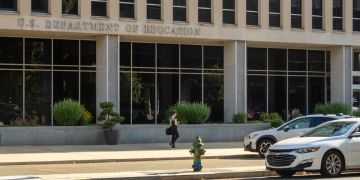The U.S. Department of Education has initiated investigations into four Kansas school districts amid concerns their gender identity policies may violate federal law. The probe involves Topeka Public Schools, Shawnee Public Schools, Olathe Public Schools, and Kansas City, Kansas Public Schools, and is being carried out by the Office for Civil Rights (OCR) and the Student Privacy Policy Office (SPPO). The inquiry follows a complaint by the Defense of Freedom Institute (DFI), grounded in Title IX and FERPA concerns.
Specifically, the complaint claims that students are being allowed to participate in sports and access intimate facilities based on gender identity rather than biological sex. It also alleges that school officials are withholding a student’s transgender status from parents without consent—practices potentially in breach of both Title IX and FERPA. Education Secretary Linda McMahon criticized the districts’ approach as “an affront not only to the law, but to the sound judgment we expect from our educational leaders,” stressing that hiding such information from parents is inappropriate. She pledged a “vigorous investigation” under Trump-era commitments to protect students and parental rights.
Kansas Attorney General Kris Kobach also raised red flags, sending a letter to Secretary McMahon in June demanding enforcement of Title IX standards that protect girls’ safety and equal access in school. He emphasized that Kansas had previously challenged the Biden administration in federal court to preserve these protections, and praised the current federal administration for taking Title IX enforcement seriously.
In response, school districts acknowledged the inquiry and reaffirmed their cooperative stance. Topeka Public Schools emphasized the value of parental involvement in educational decisions. Shawnee Mission and Olathe districts confirmed their commitment to compliance with federal and state laws and signaled their readiness to work with investigators.
At its core, this investigation raises foundational questions about the balance between student privacy and parental knowledge, as well as the limits of schools’ authority in governing gender identity matters. The outcome may set important precedents regarding how schools navigate this sensitive intersection of legal compliance, parental rights, and student welfare.




















Discussion about this post